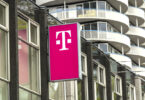On June 24th, Canadian company Graph Blockchain (Graph) announced that, via an in-country partner, it has secured a $55,000 (CAD) contract with the Seoul Ministry of Transportation. The firm will pilot a blockchain based storage solution for traffic data in the bustling South Korean capital.
Graph provides blockchain data solutions, largely to corporations and government institutions. It has created a proprietary integration between AgensGraph, an enterprise-focused database engine, and Hyperledger Fabric.
In November last year, the startup listed on the Canadian Securities Exchange and has a small market capitalization of $3.4m CAD.
For Seoul’s Metropolitan Government, Graph will leverage its technology to provide a transparent, immutable ledger capable of processing data nearly instantly. One of its features is intuitive visualization. This pilot is part of Seoul’s ‘Smart City’ project, which hopes to digitally transform the capital.
Announced in March, the Smart City initiative includes Internet of Things (IoT) sensors, chatbots for civil service hotlines, and a digital transformation of parking lots, enabling the public to reserve and pay for a space on their smartphones.
Seoul’s Mayor, Park Won-soon, announced that the 50,000 planned IoT sensors will measure levels of pollution, light, and traffic. This collected data will require a secure and scalable storage system, so it is no surprise that Seoul decided on a blockchain solution.
“This is an exciting opportunity for our Company to introduce Graph Database Blockchain solutions to the Ministry of Transportation,” stated Jeff Stevens, Graph’s CEO. “We look forward to delivering a solution that will streamline and protect data for their smart city initiatives.”
South Korea has been relatively quick to consider blockchain solutions for its public works. Nearly a year ago, the nation’s Blockchain Law Society was launched to consider the legal aspects of such projects. Meanwhile, in January, a district of Seoul tackled fraud in public tenders using blockchain, with the project winning a prize for anti-corruption.







